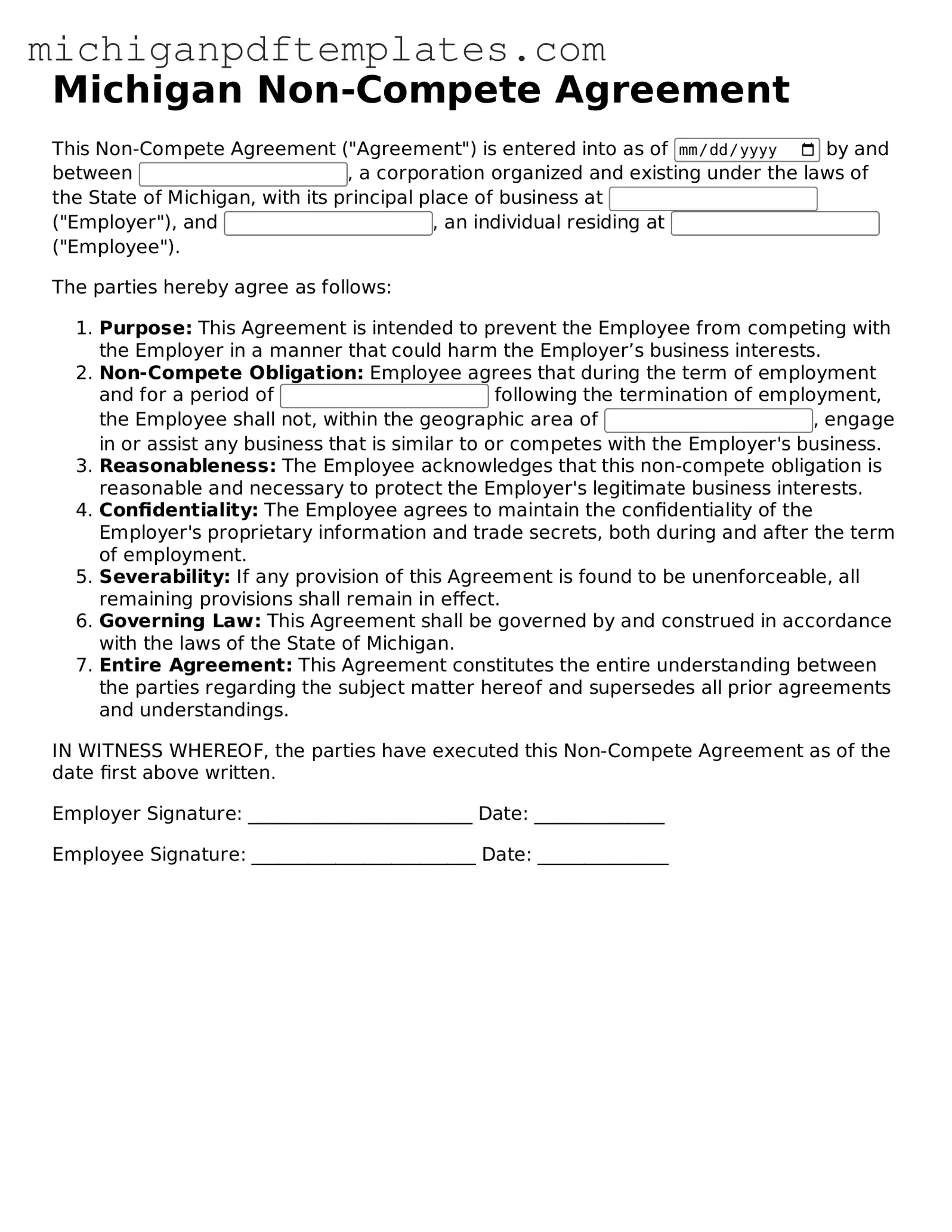Legal Michigan Non-compete Agreement Template
A Michigan Non-compete Agreement form is a legal document that restricts an employee from working for a competitor or starting a competing business for a specified period after leaving their job. This agreement aims to protect a company's confidential information and trade secrets. If you need to establish or review a non-compete agreement, consider filling out the form by clicking the button below.
Get Your Form Now

Legal Michigan Non-compete Agreement Template
Get Your Form Now

Get Your Form Now
or
▼ PDF Form
Finish this form quickly and move on
Fill in and complete Non-compete Agreement online quickly.